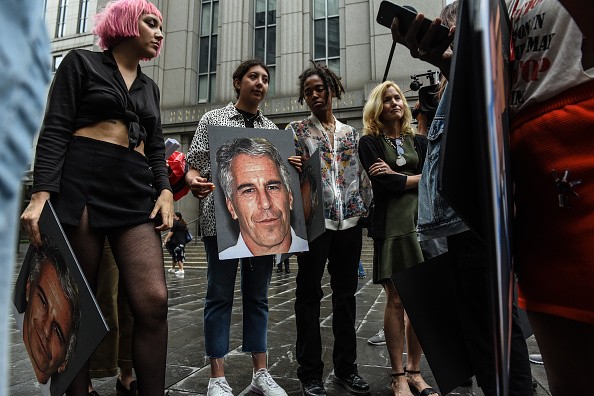
After his arrest Jeffrey Epstein received $158 million and billionaire Leon Black is retiring as the CEO of the private equity firm he co-founded.
The amount is considerably higher than originally reported, with reports last year in The New York Times reporting that he had paid Epstein $75 million.
"Given the extraordinary strength and depth of Apollo's management team and consistent with best-in-class governance practices, I have advised the Apollo board that I will retire as CEO on or before my 70th birthday in July and remain as chairman," Black stated in a comment.
Jeffrey Epstein Receives $158 Million
Right after the arrest and suicide of alleged sex trafficker Jeffrey Epstein, there has been a lot of questions as to how he got the luxurious fortune even without any real paper trail in finance which enable him to support such predatory lifestyle.
READ: Trump's Impeachment Trial Defense to be Lead by South Carolina Lawyer Butch Bowers
An initial response can be tracked back to the CEO of the large private equity corporation, Leon Black, according to the findings of an internal Apollo Global Management report. Between 2012 and 2017, investigators found that, in addition to a $30 million loan, of which just a third was paid back, Black paid Epstein $158 million for a "variety of issues related to trust and estate planning, tax, philanthropy, and the operation of the Family Office."
Black's payments to Epstein came right after Epstein was released from prison for a 2008 conviction on a charge of procuring a child for sex, which is a settlement that was notoriously lenient, allowing him to be free from prison work.
Black and Epstein Management Rivalry
In the Dechert study, a friendship going way back to the 1990s has been jotted down, with Black impressed by Epstein's links to prominent figures in politics, industry, and science, such as Harvard University researchers and the Massachusetts Institute of Technology. Black visited Epstein's Manhattan mansion regularly, entrusting him with private affairs and visiting his houses all throughout the globe.
According to the paper, one of Jeffrey Epstein's contributions was convincing Black to concentrate on these problems, as well as meeting with his family and discussing how the estate was structured. He would prepare comprehensive "fire drill" plans, checking in various conditions how Black's estate would be taxed.
Epstein's efforts were not always respected by Black's full-time employees. "In the family office, he was "generally a destructive and caustic power," the report said, one who "had a habit of overdramatizing even small perceived errors.
Moreover, while putting up long lists of his own suggestions, Jeffrey Epstein would take credit for the ideas of others. Under pressure, several of his innovative estate-planning systems did not hold up. According to witnesses, including Black, "part of working with Epstein's challenge was to separate the good ideas from the bad ones."
ALSO READ: Trump Offers Washington DC Hotel To National Guards Kicked Out of the US Capitol
Black believed that his partnership provided only professional services that included "estate planning, tax, and philanthropic endeavors" as well as occasional meetings to conduct business at Epstein's townhouse, as he claims, Epstein had no separate office.
Through emails that invoked his friendship with the billionaire and referenced private affairs shared in trust, Epstein pushed back on the matter at hand. Black had stood strong and while it was decided at an April 2018 meeting that while Epstein had played a key role in the transaction, one of Black's external lawyers had the idea.
On Monday, in a letter to investors Black had stated that he committed $200 million to services that help survivors of sexual harassment, domestic abuse, and human trafficking, one way he will "begin to address the grievous error" of maintaining a professional relationship with Epstein.








